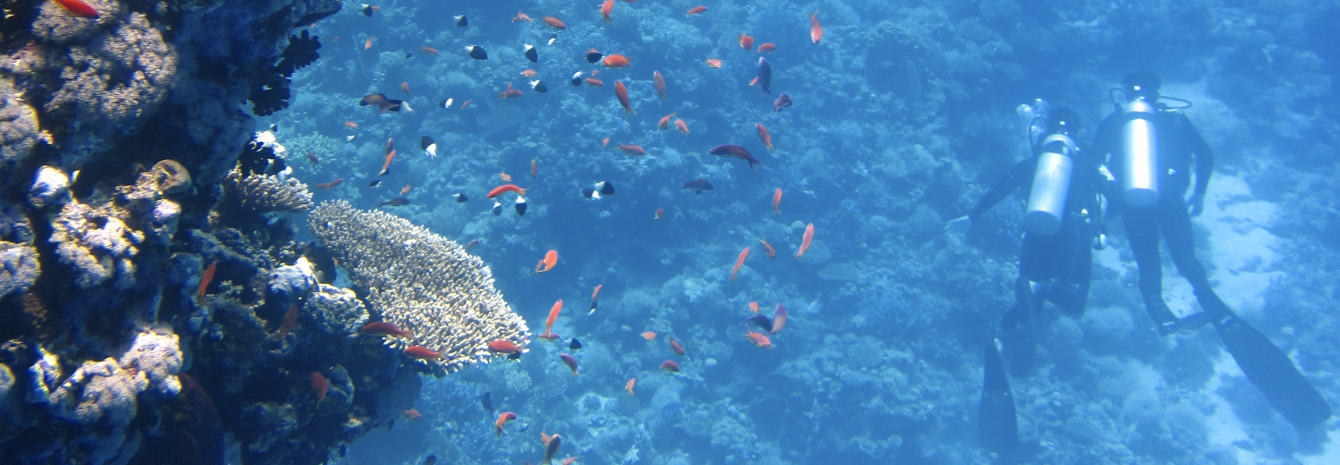Interviewing the reef—a new kind of environmental journalism?

Columbia Journalism School is putting cameras in the hands of scuba divers to get up close and personal with coral reefs. The program, called Re(ef)source, gives specially designed cameras to divers in Florida for photographing coral to gauge reef health. The Brown Institute for Media Innovation, a collaboration between Columbia and Stanford Universities, first developed Re(ef)source.
Coral reefs are the canary in the coal mine for ecosystem health in oceans and along coasts. A quarter of ocean life depends on healthy reefs for food and shelter, and entire economies and livelihoods rest on ocean tourism and fishing industries. In the Florida Keys alone, between $2 and $3 billion dollars is spent every diving season. These reefs are in perpetual danger of bleaching and other damage from humans, as well as rising ocean temperatures.
The program combines new state-of-the-art fluorescent and multispectral images, crowd-sourced data and analysis to empower citizen journalism in environmental reporting. Journalists can use Re(ef)source data for a new type of environmental interview. Instead of relying on experts alone, the environment becomes a source itself.
Make Your Commitment Today
